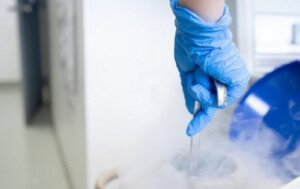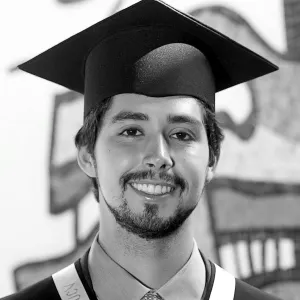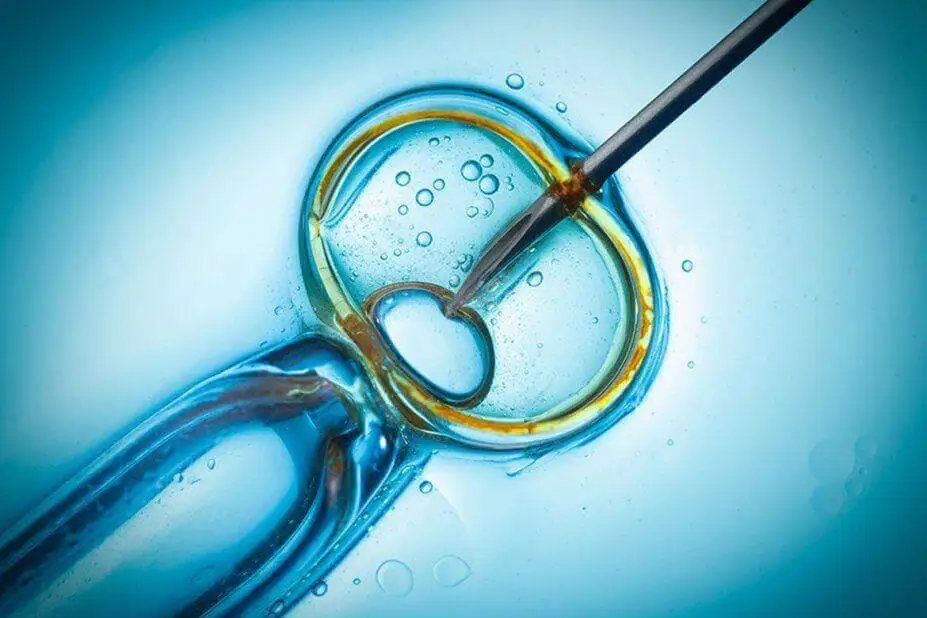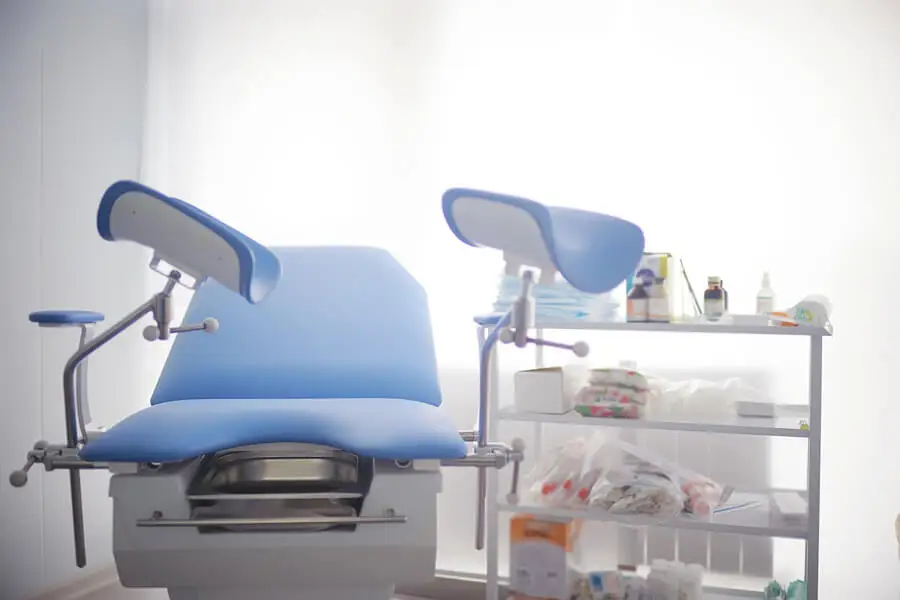Egg Donation, an Act of Solidarity


Reviewed and approved by the doctor José Gerardo Rosciano Paganelli
Nowadays, conceiving a child thanks to the various assisted reproduction techniques is very common. For some of these techniques, donor eggs and sperm are needed, and while sperm donation is very common, egg donation is far less common.
This is perhaps due to the lack of knowledge that exists around this practice. For example, some studies such as Anonymous gamete donation for assisted reproduction in Spain point out that this type of donation is completely anonymous and that if this were not the case, it’s possible that many of the donors wouldn’t do it.
Despite being a less frequent practice than sperm donation, the practice of egg donation has increased in recent years due to an increase in demand from women who delay their maternity and who have problems getting pregnant. These donations undoubtedly make it easier for them to become mothers.
What are donated eggs used for?
Many couples have to resort to an egg donor in order to have children. There may be many different reasons for this: ovarian failure, repeated miscarriages, the failure of other assisted reproduction techniques, high maternal age or early menopause, women with hereditary diseases, etc.
The technique most commonly used in these cases is in vitro fertilization with donor eggs and sperm from a male (from the woman’s partner or from a donor) and the subsequent implantation of the embryo in the uterus of the recipient woman. It’s important to emphasize that this is a completely anonymous act, so the donor and the recipient will not have any kind of contact between them.

However, there are certain requirements and procedures that we must take into account in order to avoid disappointment in the event that we wish to donate our eggs.
Requirements to become an egg donor
To become an egg donor, a series of requirements must be met, which we will explain below. However, in general, any woman can be an egg donor if:
- She’s between 18 and 35 years old
- She’s physically and mentally healthy
- The woman has a normal ovulatory function
- She has no infectious diseases
- She has no personal or family history of malformations or genetic diseases
We think you may be interested in reading this, too: A False Period: What Is It and Why Does It Appear?
The egg donation procedure
Although the procedure varies according to the clinic or center where it’s performed, in all of them there are a series of common phases.
- Preliminary interview: A medical history, a blood test, other diagnostic tests, and a physical examination are performed to ensure that the donor is in good health and verify the absence of diseases that make it impossible to be a donor and the correct ovulatory function.
- Ovarian stimulation: The donor is subjected to a hormonal ovarian stimulation that lasts less than a month and allows for obtaining between 6 and 10 eggs in a menstrual cycle. During this time she is also subjected to analytical and ultrasound controls.
- Egg retrieval: The egg retrieval process lasts only a few minutes and is performed through the vagina under sedation or light anesthesia. It’s an outpatient procedure, so the woman can continue with her daily routine almost immediately.

Although no medical procedure is completely free of risks, the risks to the donor are very low. The most common are slight discomfort similar to menstrual discomfort. In addition, it’s important to emphasize that her fertility is not at all compromised. Therefore, this type of donation is safe.
Like this article? You may also like to read: Is it Normal to Have Blood Clots During Your Period?
The moral and monetary compensation for egg donation
Egg donation is often a very satisfying experience for the donor woman, as it’s a very generous and caring act that will allow other women to become mothers.
In addition to the emotional benefit, the donor woman will have a complete clinical examination of her general health and fertility. As we have mentioned, this donation does not compromise the donor’s well-being or fertility.
Although egg donation is an altruistic act, according to the Assisted Reproduction Law (14/2006), a small financial compensation is received for the possible discomfort caused, or rather, for the whole process the donor must go through and the possible discomfort (similar to menstrual cramps) she may experience.
The monetary compensation can vary between 600 and 1,000 euros in Spain. However, it’s important to note that less than half of the women who wish to donate are suitable candidates. In addition, the law in many countries limits how many times a woman can donate eggs. In Spain, for instance, the law stipulates that a woman can have a maximum of 6 offspring through egg donation.
Donating eggs: An altruistic act
Have you ever thought about donating your eggs? If you haven’t, do you think it’s because there’s so little information about it? While it’s more common to donate sperm or even blood, other types of donations are more “behind the scenes.” However, they are still equally important to be able to help others.
If this sounds like an interesting option to you, make sure to ask your gynecologist or doctor if you’re in good health to donate eggs.
All cited sources were thoroughly reviewed by our team to ensure their quality, reliability, currency, and validity. The bibliography of this article was considered reliable and of academic or scientific accuracy.
- Alepuz, B. A., & Fernández, F. R. (2019). La donación de óvulos en la reproducción asistida: riesgos y responsabilidad. Ius et scientia, 5(2), 11–54. https://revistascientificas.us.es/index.php/ies/article/view/13336
- Balladares García, P. N., & Morejón Olivo, P. I. (2022). La ilegalidad de la compensación económica en la donación de óvulos. Universidad de Guayaquil, Facultad de Jurisprudencia Ciencias Sociales y Polìticas.
- BOE.es – BOE-A-2006-9292 Ley 14/2006, de 26 de mayo, sobre técnicas de reproducción humana asistida. (n.d.). Boe.es. Retrieved January 23, 2023, from https://www.boe.es/buscar/act.php?id=BOE-A-2006-9292
- IVIDONA. (2016). ¿Cómo donar óvulos? Ividona.es. https://www.ividona.es/como-donar-ovulos/
- Cortiñas S., P. (2001). Etica y donación del gameto femenino. Interciencia, 26(9), 404–411. http://ve.scielo.org/scielo.php?script=sci_abstract&pid=S0378-18442001000900007&lng=en&nrm=iso&tlng=es
- Gómez, M. B., Trolice, M. P., Arroyo, M. D., Rodrigo, A., & Ballesteros, A. (2021). Reproducción asistida con donación de óvulos, semen y embriones. Reproducción Asistida ORG. https://www.reproduccionasistida.org/donacion-y-reproduccion-asistida/
- Igareda González, N. (2016). La donación anónima de gametos para reproducción humana asistida en España: problemas y retos. Revista de Bioetica y Derecho, 38, 71–86. https://doi.org/10.1344/rbd2016.38.17046
- Salvador, Z., García-Donato, J. D., Fernández-Sánchez, M., & Paz, V. V. (2018). Ley 14/2006 de reproducción humana asistida en España. Reproducción Asistida ORG. https://www.reproduccionasistida.org/leyes-de-reproduccion-humana/
- Shaw, S. F. (2015). Requisitos para donar óvulos – URH. URH – Clínica de Fertilidad e Aravaca (Madrid). http://www.urh.es/requisitos-para-donar-ovulos/
- Solari B, Daniela, Villa V, Sonia, Schwarze M, Juan Enrique, Balmaceda R, José, Albornoz G, Claudia, & Pommer T, Ricardo. (2012). Motivaciones y actitudes hacia la donación voluntaria de ovocitos: Experiencia de la Unidad de Medicina Reproductiva de la Clínica Monteblanco. Revista chilena de obstetricia y ginecología, 77(5), 342-346. https://dx.doi.org/10.4067/S0717-75262012000500004
- Zegers-Hochschild, Fernando. (1998). Dilemas de la reproducción asistida. Cadernos de Saúde Pública, 14(Suppl. 1), S7-S23. https://dx.doi.org/10.1590/S0102-311X1998000500002
This text is provided for informational purposes only and does not replace consultation with a professional. If in doubt, consult your specialist.








